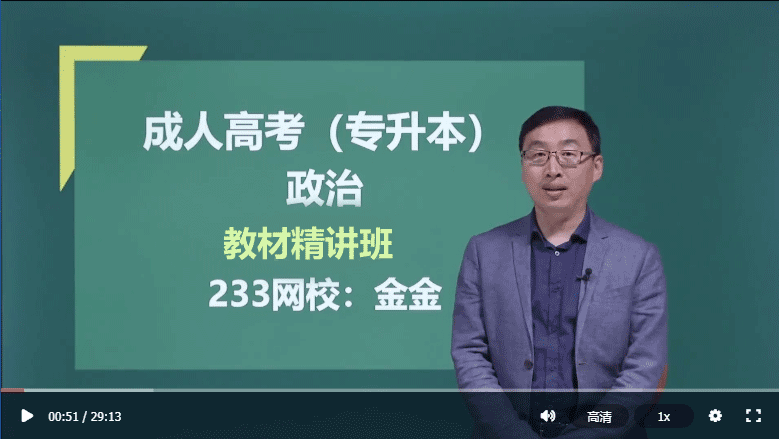цшфИхцЌшБшЏщ шЏЛчшЇЃшІчЙхц
ууPassage 17
ууWhen my son Ryan saw a T-shirt on sale for 5 dollars marked down from 8яМ he told meяМ тWe'll save 3 dollars if we buy it now.т
ууHe looked at me in surprise when I answeredяМ тWe'll save 5 dollars if we don't buy it at all.т
ууToday's children get lots of messages and values from television and from friends. They are encouraged to buy things they don't need. What they need is an understanding of the value of the dollar.
ууHow do children learn the important facts of lifeяМ Most schools do not teach them. It is up to parents to help their children.
ууTo learn about money children need to have some. Early onяМ parents often handed out money on an as-needed basis. But experts say paying certain amount of money each week is the best way to teach children the meaning of moneyяМ how to use it and how to plan.
ууYour child is ready for some money each week around age 5 or 6яМ when he gets to know the relationship between money and shopping and asks you to buy him things.
ууBut how much should the parents giveяМ Some experts suggest giving one dollar for each year of ageяМ but Dr Olivia Mellan disagreeяМ тI think 5 dollars a week is too much for a 5-year-oldяМ and 15 dollars is probably not enough for a 15-year-old.т тWhat's right for your child depends on three thingsяМ the child's level of
ууdevelopmentяМ how much you can giveяМ and what you expect him to pay for.т
ууNo matter how much you give themяМ children will soon feel they need more. But Sharon M. DanesяМ a professor at the University of MinnesotaяМ insists that children don't need a raise each yearяМ тThere's no lesson to be learned when children expect an increase just because they are a year olderяМт she says. тWhat
ууthey should learn is how to be good money earnersяМ savers and spenders.т
уу1. In тan understanding of the value of the dollarтяМ the word dollar is best explained as ______.
ууA. values from TV and friends
ууB. what one saves
ууC. the price of a T-shirt
ууD. money in general
уучцЁяМD
уу2. What should parents do to help their children understand facts of life such as managing moneyяМ
ууA. Help the children plan their use of money.
ууB. Ask the children to hand out money carefully.
ууC. Give the children money on a monthly basis.
ууD. Permit the children to ask for more when needed.
ууexperts фИЛшЏ say шАшЏ х ЖфНфИКхЎОшЏфЛхЅу
ууpaying certain amount of money each week хЎОшЏфЛхЅфИчфИЛшЏ
уучцЁяМA
уух чЈх ГщЎшЏхЎфНхцфНчНЎяМхІццВЁццОхАчИхКччцЁяМхАБчЛЇчЛхОфИцЎЕчяМчЙхЋцГЈццЎЕщІхцЎЕхАОчхЅху
уутхИІчщЎщЂхЛцОчцЁчцЙцГтшІчЕцДЛццЁяМшфМшДЏщу
ууbe up to sb. яМ цЏцфККчшшДЃцфЙхЁу
ууeg. It's up to us to help those in need. цфЛЌцшДЃфЛЛхИЎхЉщЃфКцхАщОчфККу
ууhand outяМ ххцхщ цчЉу
ууeg. Relief workers were handing out emergency rations яМto the survivorsяМу ццЕфККххЈяМхчшПш яМххчДЇцЅщ чЛху
уу3. Why does Dr Olivia Mellan have a different idea about the
ууamount of money given to childrenяМ
ууA. She holds that one dollar for each year of age is far from enough.
ууB. She believes that children should be given more than they need.
ууC. She feels that different age groups need different things.
ууD. She thinks that age difference is not the whole thing.
ууWhat's right for your child цЏфИЛшЏфЛхЅяМх ЖхчшАшЏшІчЈхцАхНЂхМу
уучцЁяМD
ууCщЁЙфИчneedфИчЌІххц
ууsuggest doing sth. хЛКшЎЎхцфКу
ууsuggest that + фИЛшЏ+яМshouldяМ+хЈшЏххНЂ
уу4. According to Professor DanesяМ parents should ______.
ууA. give 5 dollars to children more than 15 years old
ууB. allow a yearly increase as their children grow older
ууC. refuse to pay for certain things their children want to have
ууD. teach their children how to make money and use it wisely
ууWhat they should learn фИЛшЏфЛхЅ
ууearner цЃщБш
ууsaver хщБш
ууspender шБщБш
уучцЁяМD
уу5. From the passageяМ we know that ______.
ууA. experts agree that it is up to parents to help their children manage money
ууB. experts agree on the amount of money given to children
ууC. experts didn't agree on the amount of money given to children
ууD. experts agree that children don't need a raise each year
ууцЌщЂшцЅщчЙцЏцчЋ чфИхПццГу
уушЇЃщЂцшЗЏяМчцЏфИцЎЕчхЅшЏххфИхЅшЏу
ууagree on хцушООцфИшД
уучцЁяМC
уучБЛфММщЂхяМцчЋ хЄЇцяМшІхЏЙцЏфИцЎЕчхЅшЏшЎЄчщ шЏЛу
ууAщЁЙцЏцчЋ ччЛшх хЎЙяМфИщу
уухщЂчЎчяМщхАцЏфИчЇщЂхщНфМху
ууagree on sth. яМфИцфККяМцшЇфИшД
ууeg. We couldn't agree on a date. х ГфКцЅццфЛЌцЊшНххОфИшДцшЇу
ууon sale хфЛЗ
ууin surprise хОцшЎЖхА
чИх ГцЈш
- 2017хЙДцфККщЋшфИхцЌшБшЏшшЏххЙДчщЂфНцчВОщцБцЛ03-28
- 2017хЙДцфККщЋшфИхцЌшБшЏшшЏххЙДчщЂфНцчВОщфЙ03-24
- 2017хЙДцфККщЋшфИхцЌшБшЏшшЏххЙДчщЂфНцчВОщх Ћ03-24
- 2017хЙДцфККщЋшфИхцЌшБшЏшшЏххЙДчщЂфНцчВОщфИ03-24
- 2017хЙДцфККщЋшфИхцЌшБшЏшшЏххЙДчщЂфНцчВОщх 03-24
| ПЮГЬзЈвЕУћГЦ | НВЪІ | дМл/гХЛнМл | УтЗбЬхбщ | БЈУћ |
|---|---|---|---|---|
| гяЮФ(ИпЦ№Еу)ОЋНВАр | ЕЫО§УФ | ЃЄ150 / ЃЄ150 |  |
БЈУћ |
| гЂгя(ИпЦ№Еу)ОЋНВАр | Monica | ЃЄ150 / ЃЄ150 |  |
БЈУћ |
| Ъ§бЇ(ЮФ)ОЋНВАр | ЭѕЗМ | ЃЄ150 / ЃЄ150 |  |
БЈУћ |
| Ъ§бЇ(Рэ)ОЋНВАр | ТогзжЅ | ЃЄ150 / ЃЄ150 |  |
БЈУћ |
| ДѓбЇгяЮФ(зЈЩ§БО)ОЋНВАр | ХЗбєАиСи | ЃЄ150 / ЃЄ150 |  |
БЈУћ |
| гЂгя(зЈЩ§БО)ОЋНВАр | Monica | ЃЄ150 / ЃЄ150 |  |
БЈУћ |
| ИпЕШЪ§бЇ(вЛ)(зЈЩ§БО)ОЋНВАр | ЭѕЬЮ | ЃЄ150 / ЃЄ150 |  |
БЈУћ |
| ИпЕШЪ§бЇ(Жў)(зЈЩ§БО)ОЋНВАр | ТогзжЅ | ЃЄ150 / ЃЄ150 |  |
БЈУћ |
ИЈЕМПЮГЬ
- ИпЦ№Еу-Ъ§бЇ(ЮФЪЗВЦОРр)

- ЭѕЗМРЯЪІ
 УтЗбЪдЬ§
УтЗбЪдЬ§
- ИпЦ№Еу-гЂгя

- MonicaРЯЪІ
 УтЗбЪдЬ§
УтЗбЪдЬ§
- зЈЩ§БО-ДѓбЇгяЮФ

- ХЗбєАиСиРЯЪІ
 УтЗбЪдЬ§
УтЗбЪдЬ§
АрМЖНщЩм
ЬзВЭАќКЌЃКзЈЩ§БОVIPАр/ИпЦ№ЕуVIPАрЃЈКЌОЋНВ+ецЬтНтЮі+ФЃПМЕуЬт)
ЬзВЭгХЪЦЃК1ЁЂЫјЖЈКЫаФПМЕу
2ЁЂПМЧАЗЂЗХ2ЬзЪдЬт
3ЁЂУтЗбжибЇвЛДЮБЃеЯ
ХфЬзЗўЮёЃК1ЁЂУтЗбЬтПт
2ЁЂПЮГЬНВвх+ПЮМўЯТди+вЦЖЏПЮЬУ







 УтЗбЪдЬ§
УтЗбЪдЬ§ 




